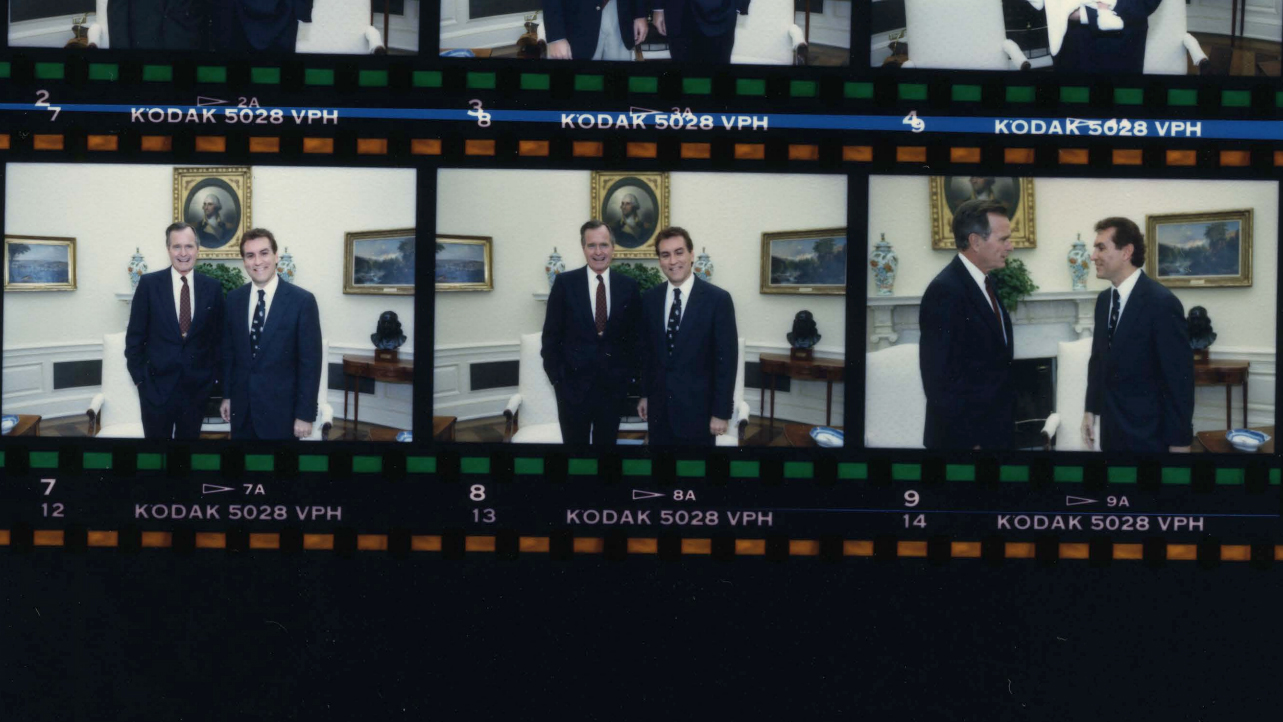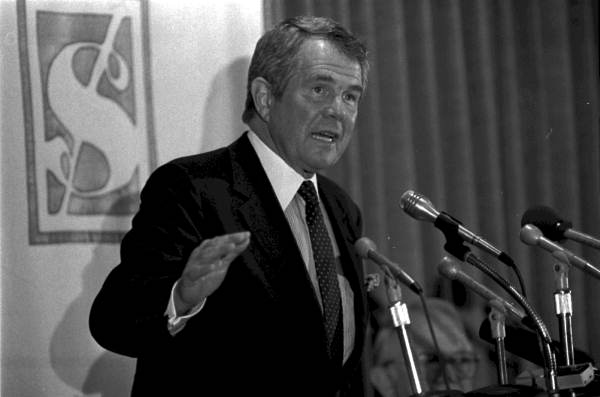(RNS) — After Pat Robertson astonished the political world by beating out Vice President George H.W. Bush for second place in the 1988 Iowa Republican caucus (Sen. Bob Dole of nearby Kansas was first), I found myself opining on New York talk radio about the Christian broadcaster’s prospects in the South.
Here I was, a national political reporter for the Atlanta Journal-Constitution and author of a forthcoming book on religion in American public life. Confidently, I declared that Robertson would do really well in the land of white evangelical Christians.
I couldn’t have been more wrong. On Super Tuesday a month later, Robertson was swept away, losing to Bush everywhere in the South by margins ranging from 5-to-1 in Mississippi and Tennessee to 3-to-1 in Georgia and his home state of Virginia.
Sure, I could come up with reasons for the wipe-out. Regular primaries drew many more voters than caucuses did. A lot of white Southerners were Baptists, and Baptists in those days were still dubious about Pentecostals like Robertson. His success in Iowa had called public attention to his televised claim to have kept a hurricane at bay by the power of prayer. He’d lost badly to Bush in New Hampshire.
But there had to be something more, I thought, and months later, after Bush had captured the GOP presidential nomination, I learned what it was from Doug Wead, the writer and Republican apparatchik who ran religious outreach for the Bush campaign.

Contact sheet of images of President George H.W. Bush, left, with Doug Wead in 1990. Photos by David Valdez/Wikipedia/Creative Commons
The opponent they’d feared the most, Wead said, was U.S. Rep. Jack Kemp of New York, the onetime Buffalo Bills quarterback who appealed to both economic and social conservatives (i.e. country clubbers and evangelicals). So the plan was to knock off Kemp in Iowa by doing nothing to thwart Robertson’s church-based organizing.
Robertson’s method was simple. A few weeks before a caucus or primary, Robertson supporters would set up tables outside the sanctuary, and, before long, going out to vote for Pat would become one more church activity.
Unfortunately, from the Bush perspective, in Iowa this worked too well, and Robertson vaulted ahead of him as well as Kemp.
But Lee Atwater, Bush’s shrewd South Carolinian campaign manager, made sure it wouldn’t work in the South. He took Bush around to meet evangelical pastors and allow as how he considered himself born again, too. And when the Robertson tables went up, a well-to-do parishioner would go to the pastor and say, “I see the Robertson folks have tables up. I’m a supporter of the vice president and I’d like to set up tables for him.” In church after church, the pastor would reply, “You know what, we’re not going to do tables.”
Across the Bible Belt, the Robertson campaign was cut off at the knees. But the exercise taught Robertson a lesson, and he put it to good use after the campaign was over to establish the Christian Coalition. The organization’s stock in trade became voter guides distributed at election time in evangelical churches across the nation.
Non-profit organizations devoted to a cause can distribute voter guides differentiating candidates based on their positions without putting their tax-exemptions at risk. Not so with the Christian Coalition. Robertson and the organization’s executive director, Ralph Reed, made sure their guides favored Republican candidates, and as a result, its tax exemption was denied by the IRS.
But the effort was hardly in vain. By the 2000s, white evangelicals had internalized the lesson that Democrats were of the devil and made themselves into the immovable base of the GOP.
Call it Pat Robertson’s legacy to America.






